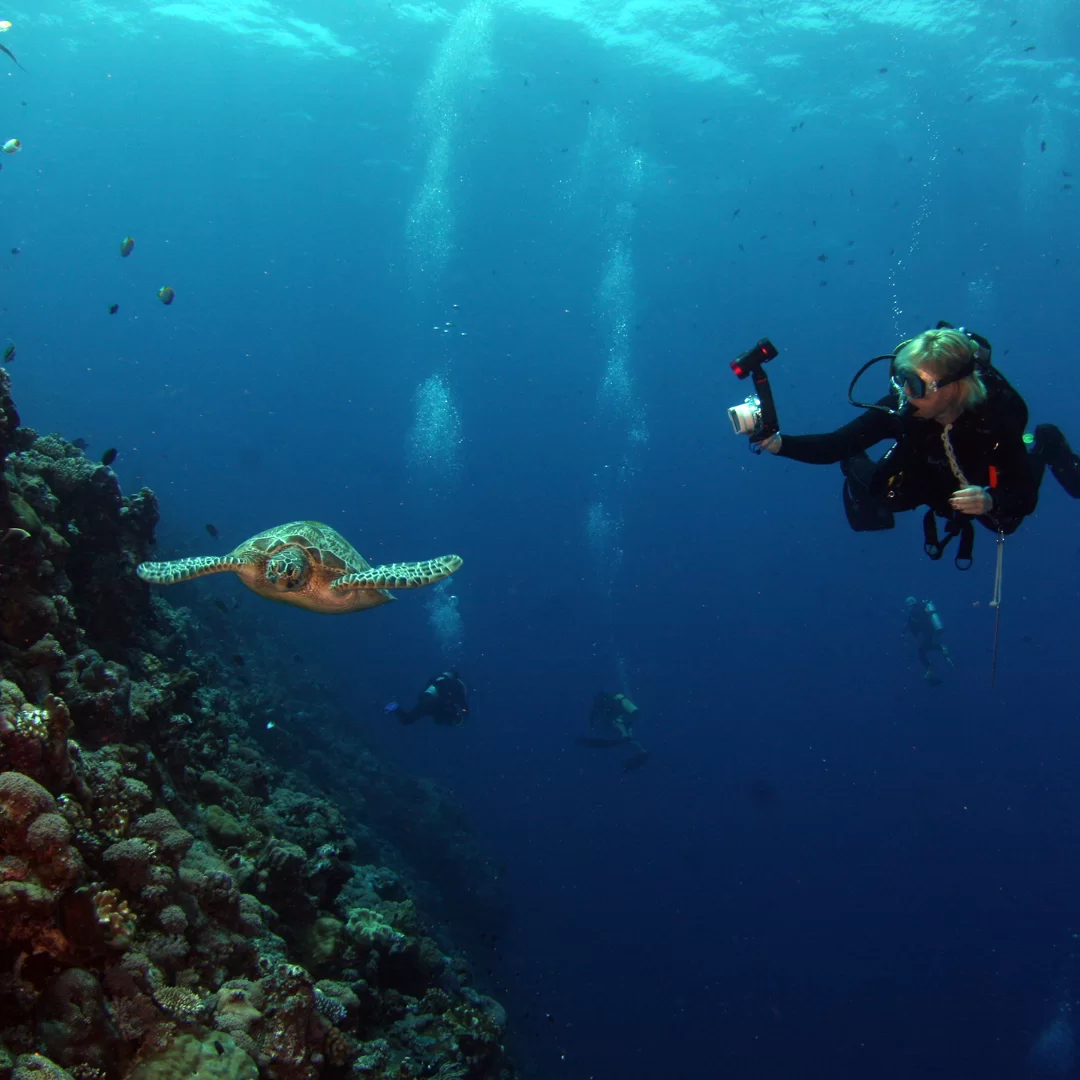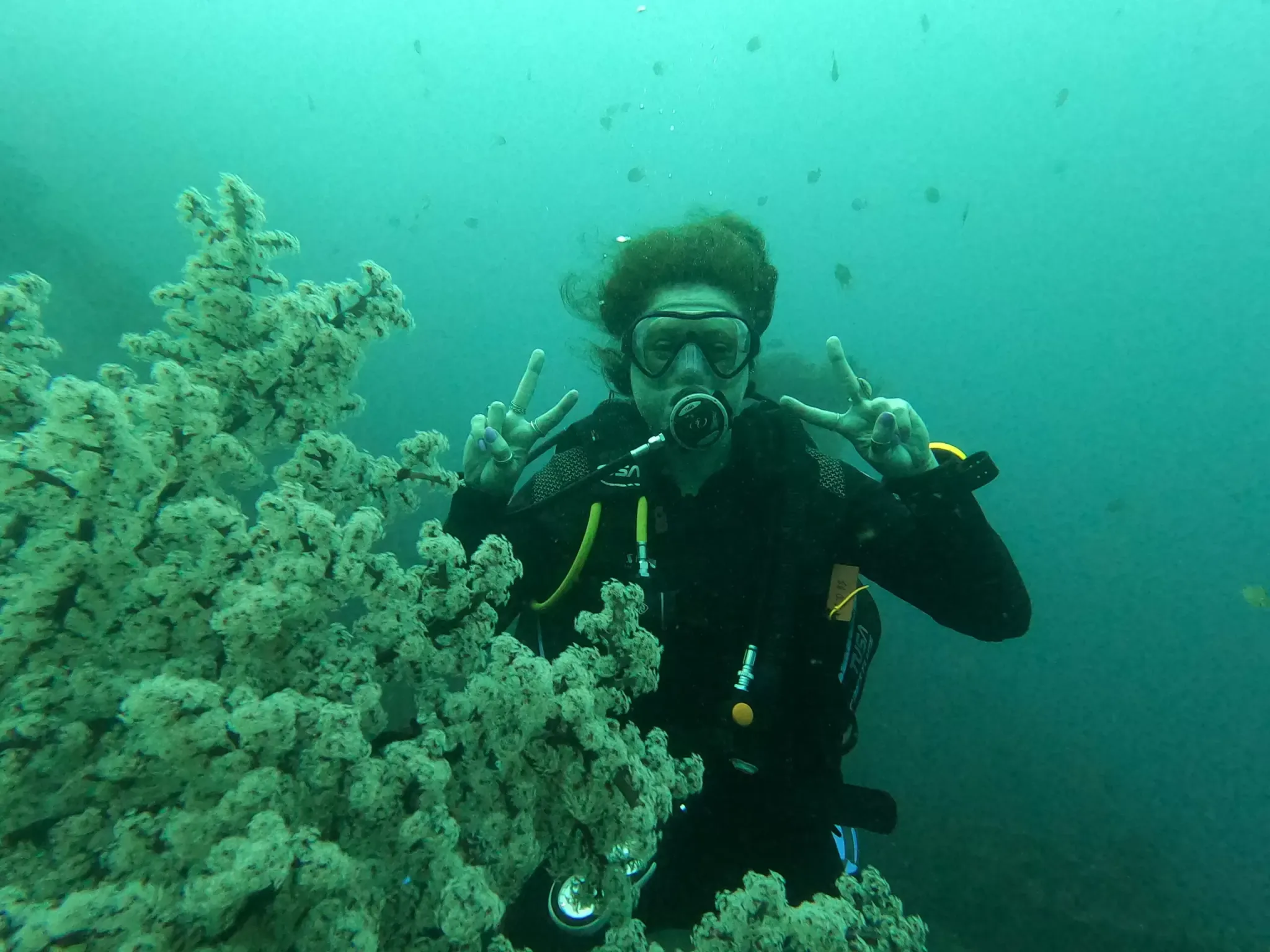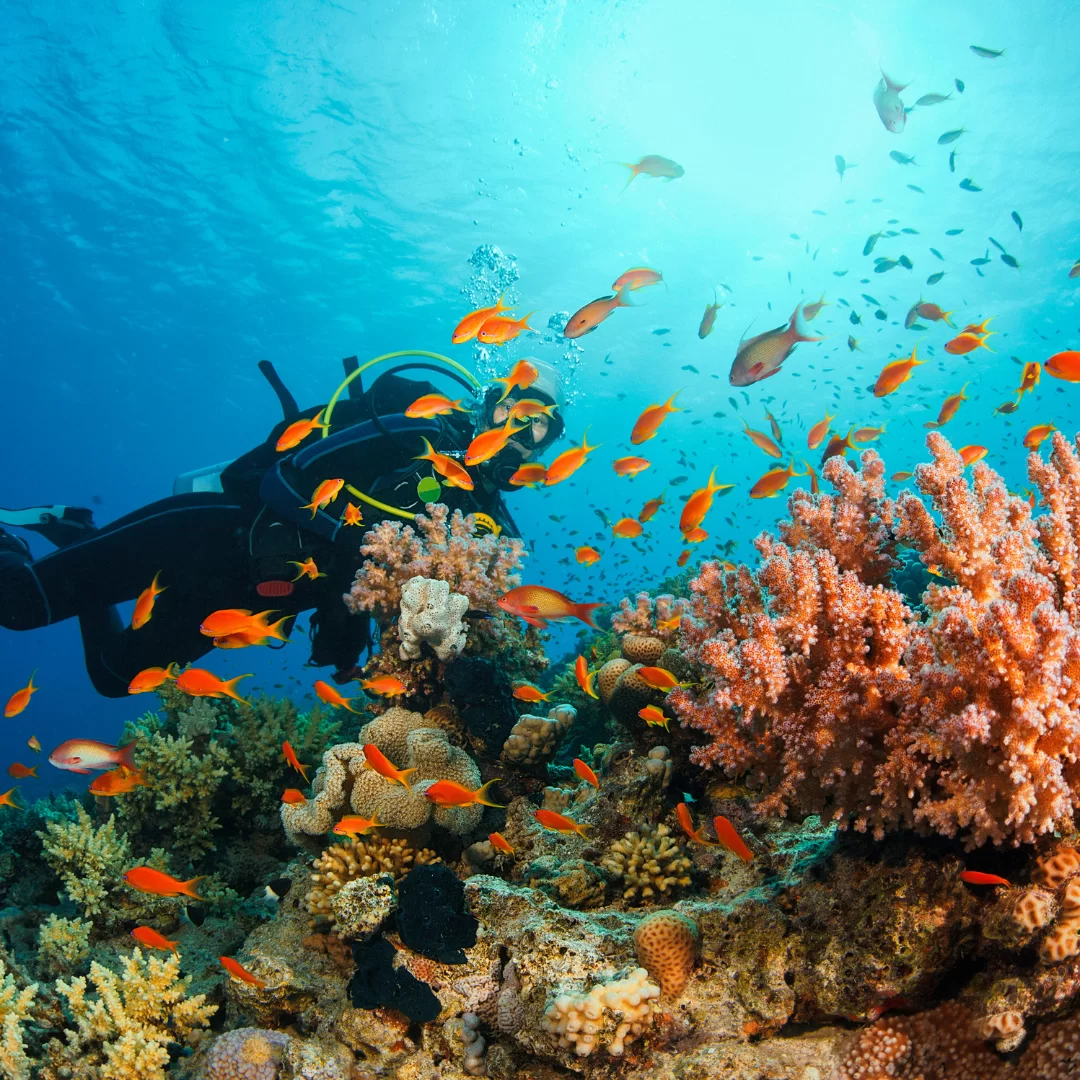What Happens to Your Body While Scuba Diving?
Scuba diving is an incredible adventure that allows you to explore the underwater world, but did you know that the environment beneath the waves can affect your body in unique ways? From the pressure of the deep sea to the way your lungs work, scuba diving involves some fascinating physiological changes. In this blog, we’ll break down exactly what happens to your body when you dive into the depths of the ocean.
arrow
Pressure and Your Body
Increased Pressure:
As you descend into the water, the pressure around you increases. For every 10 meters (33 feet) you dive, the pressure increases by one atmosphere (atm). This means that by the time you reach 30 meters (about 100 feet), the pressure is three times greater than it is on land.
Effects on Air Spaces:
The increased pressure affects any air-filled spaces in your body, such as your lungs, sinuses, and middle ear. To compensate for this, you need to equalize the pressure in these spaces by gently exhaling while pinching your nose and blowing (called the Valsalva maneuver) or swallowing. If you don’t equalize properly, you could experience discomfort or even injury, such as barotrauma (damage caused by pressure differences).
Breathing and Nitrogen Absorption
Breathing Underwater:
Scuba divers breathe compressed air from tanks, which contains oxygen (O2) and nitrogen (N2). As you dive deeper, the amount of nitrogen your body absorbs increases because of the increased pressure. This nitrogen stays in your tissues until you ascend to the surface and “off-gas” it.
Nitrogen Narcosis:
At deeper depths, the effects of nitrogen on your brain can cause a condition known as nitrogen narcosis. Sometimes called “the rapture of the deep,” it can give divers a feeling of euphoria, but it can also impair judgment and coordination. This effect usually occurs at depths greater than 30 meters (100 feet) and disappears when you ascend.
Blood Circulation
Vasoconstriction:
As you descend, the cold temperature and increased pressure cause blood vessels near the skin to constrict, redirecting blood flow to vital organs to preserve core body temperature. This is called vasoconstriction, and it helps protect your body from the cold and maintain vital functions.
Increased Heart Rate:
Initially, when you enter the water, your body goes into a diving reflex (also called the mammalian dive reflex), which triggers a slowing of the heart rate and redirects blood to essential organs like the brain and heart. This reflex helps conserve oxygen while underwater, allowing you to stay submerged longer.
Lung Function
Lung Compression:
As you dive deeper, the pressure compresses the air in your lungs. This means the volume of air you breathe in at depth is smaller compared to the surface. To adjust, your body works harder to maintain steady breathing, but it’s important to remember that your air consumption rate increases with depth.
Breathing Technique:
Divers are trained to take slow, deep breaths, which helps to maximize air supply and prevent shallow water blackout due to hyperventilation. Proper breathing also helps reduce the risk of lung injuries, such as pulmonary barotrauma, which occurs when expanding air in the lungs causes damage during an ascent.
The Risk of Decompression Sickness (The Bends)
Decompression:
As you dive, nitrogen from your breathing gas dissolves into your tissues. When you’re at depth, your body is absorbing nitrogen at a faster rate than it is being expelled. If you ascend too quickly, the nitrogen in your tissues forms bubbles, which can lead to decompression sickness (DCS), also known as “the bends.”
Preventing Decompression Sickness:
To avoid this, divers must ascend slowly and make safety stops at certain depths to allow the body time to release the excess nitrogen. Most dive tables or dive computers help determine the correct ascent rate and necessary stops.
Temperature Regulation
Cold Stress:
The deeper you go, the colder it gets. Even in tropical waters, temperatures can drop significantly at depth. Your body may start to lose heat, and prolonged exposure to cold water can lead to hypothermia. That’s why divers wear wetsuits or drysuits to help insulate the body and retain heat.
Thermal Protection:
Wearing the appropriate suit based on water temperature is key to staying comfortable during the dive. A wetsuit allows a thin layer of water between the body and the suit, which warms up and keeps you insulated, while a drysuit keeps you completely dry and insulated from the cold water.
Post-Dive Recovery
Dehydration:
The effects of diving aren’t over when you surface. You may experience dehydration because of the dry air in the tank, the physical exertion, and the effects of cold water. Be sure to hydrate well before and after a dive.
Post-Dive Fatigue:
Diving is a physically demanding activity, and many divers feel tired after a dive, especially if they’ve been underwater for an extended period or at greater depths. Taking time to rest and recover after your dives is important for your health and safety.
Conclusion
Scuba diving is a thrilling and awe-inspiring activity that allows you to experience the wonders of the underwater world. However, it’s essential to understand how the pressures, gases, and environmental factors affect your body during and after a dive. By knowing what happens to your body while diving, you can dive safely and enjoy all the incredible experiences the ocean has to offer.
Always remember to dive within your limits, equalize regularly, stay hydrated, and ascend slowly to ensure a safe and enjoyable dive every time!







Leave A Comment